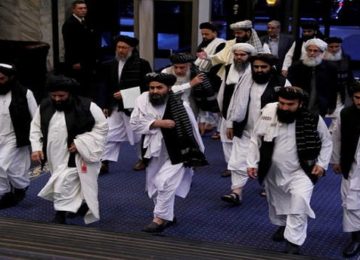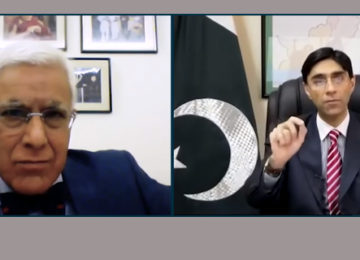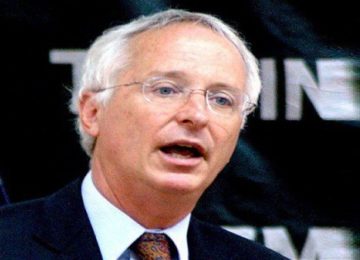President Barack Obama had in March 2008 dubbed Pakistan’s Federally Administered Tribal Areas (FATA) abutting Afghanistan as the “most dangerous place.” The reasons; these semi-autonomous regions – governed by a draconian British colonial era set of laws called the Frontier Crimes Regulation (FCR) and enacted in 1902 – had degenerated into literal no-go areas and become a hotbed of militancy, terrorism and crime.
The 31st Constitutional Amendment Bill in the national legislature on May 24, followed by approval in the upper house – the Senate – a day later, constitutionally consigned FATA to the dustbin of history. And on May 27, the penultimate day of its tenure, the Khyber Pakhtunkhwa (KP) Assembly drove the last nail in the coffin of this historical injustice by passing the KP-FATA merger bill with a two-thirds majority. This meant the completion of the legislative formalities required for mainstreaming the FATA regions i.e., taking them out of the federal control and placing them under the provincial government.
The seven FATA agencies – spread over 27,200 km2 – will now become districts and the six Frontier Regions (FRs) too will be merged with Khyber Pakhtunkhwa.
“During a meeting of the FATA Reforms Committee, Chief of Army Staff Gen Javed Qamar Bajwa had asked me to settle the issue of FATA once and for all,” Chief Minister Pervez Khattak told fellow lawmakers on the occasion, resonating a similar passionate appeal by Bajwa during his interaction with top newsmen and anchorpersons on March 9.
The rush with which it all happened from Islamabad to Peshawar provided clear indications of this anxiety at the military’s General Headquarters (GHQ) – as Sharifs and their prime minister Shahid Khaqan Abbasi seemed to dither and were seized with other priorities, including their defense in cases related to four flats in London allegedly owned by the Sharif family.
Also, when Sharifs tasked Sardar Mehtab, the then governor of Khyber Pakhtunkhwa, to develop a Vision 2025 for FATA back in 2014, it was evident that the entrenched forces of status quo hardly favoured a quicker time-frame for change in the legal status of a region that meanwhile has access to all modes of modern communications – vehicles, cellphones, electrical gadgets – but were still considered by many unfit for the modern laws.
Fruition of Years of Campaigning
The completion of legal formalities for mainstreaming FATA marked a historic event and were the culmination of years of advocacy for the rights of dozens of ethnic Pashtoon tribes that inhabit these regions.
The credit for this goes to all those national political forces who have been part of consultations on this particular issue all these years. Foreign donors also deserve recognition for their contribution to national campaigns in support of FATA reforms.
The Center for Research and Security Studies (CRSS) is proud to have contributed to the campaign for political rights for FATA. It aired 20 TV shows (on PTV and Express TV) involving 200 key stakeholders with the title “Hum Bhi Pakistan” (We are also Pakistan). This was an unprecedented initiative by CRSS for inclusive democracy and fundamental rights. Never before did FATA come under such focused and sustained debate.
Additionally, CRSS also produced and aired another 100 radio shows in all on issues surrounding FATA under the title of “Moong Qabail” (We – the Tribes). And this happened with the support of National Democratic Institute plus a few other foreign sources including the USAID.
Often such interventions would draw flak and suspicion from the security establishment but at end of the day this hard work of several years eventually helped all political forces to join forces for the mainstreaming. This shows that advocacy helps in gradually evolving consensus on thorny issues.
And now to the challenges ahead:
Near four decades of conflict next door has distorted socio-political structures in FATA and the southern KP districts; they served as the launching pad for US-led anti-Soviet jihad and the US-driven Global War on Terror. These regions also hosted millions of Afghan refugees, both registered and undocumented. All this stunted the socio-economic and institutional growth of the region.
The road ahead will be thorny and would require a whole-of-government-approach for accelerated administrative mainstreaming which means raising service structures aligned with the provincial government.
Secondly, all political parties shall have to treat mainstreaming of FATA as a national cause and not as the responsibility of the party ruling the province. Without a grand political consensus, meaningful FATA mainstreaming will remain elusive and fraught with impediments unless all mainstream political parties treated it as a national cause.
Thirdly, the army, particularly after the Army Public School attack in December 2014, has done well in clearing and establishing its writ in most areas. It will do good to join civilians in putting in place the security regime for a region that bears scars of conflict.
Raising and training a culturally-sensitive but professionally well-equipped security force i.e., police and affiliated institutions will be a huge challenge and would require joint efforts. They shall have to consciously try to humanize security.
Having created an unprecedented space through its operations and also facilitated the mainstreaming moves, the army would do good to step back and let the local authorities manage matters independently. That will be the key to establish and consolidate the civilian writ.
Fourth, restive FATA youth – lots of them educated, energetic, full of ideas and love for Pakistan, would require calibrated support for a better future.
Many people, particularly youth, also suffer from the trauma that decades of militancy and military operations have inflicted on their psyche.
The real task ahead of everybody is to create the legal-administrative infrastructure to fast-pace development and give these victimized regions some semblance of legal-political equality accompanied by tools of economic development.
Knit-picking on small issues and politicizing issues that are critical to mainstreaming will only delay, and possibly squander the gains off the military campaign against terrorism and the parliamentary process thus far. In this context, the Iranian warning that Pak-Afghan border regions now may be the target for a hideout of Daesh terrorists must serve as a wake-up call for all those who want the entire Pakistan to be treated equally under the constitution. Equitable and accelerated mainstreaming is the only answer to fixing fault-lines that are prone to exploitation by the vested local and external interests.
The author Imtiaz Gul is the Executive Director of the Center for Research and Security Studies (CRSS), Islamabad.
© Center for Research and Security Studies (CRSS) and Afghan Studies Center (ASC), Islamabad.








